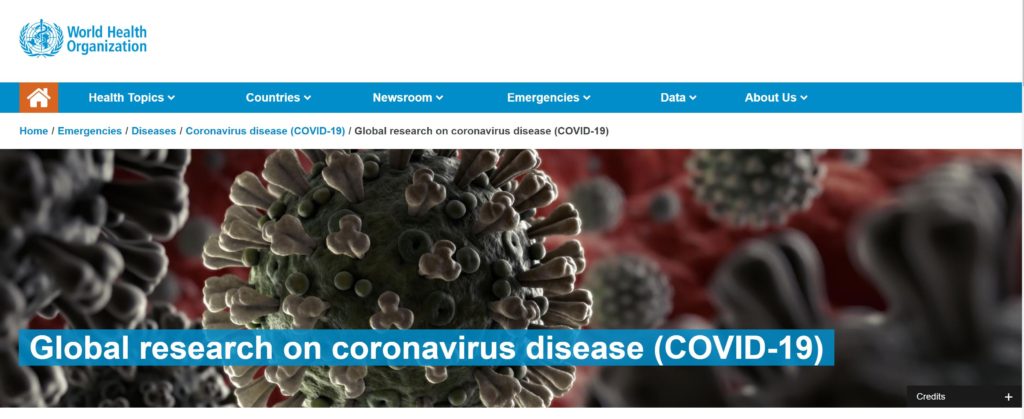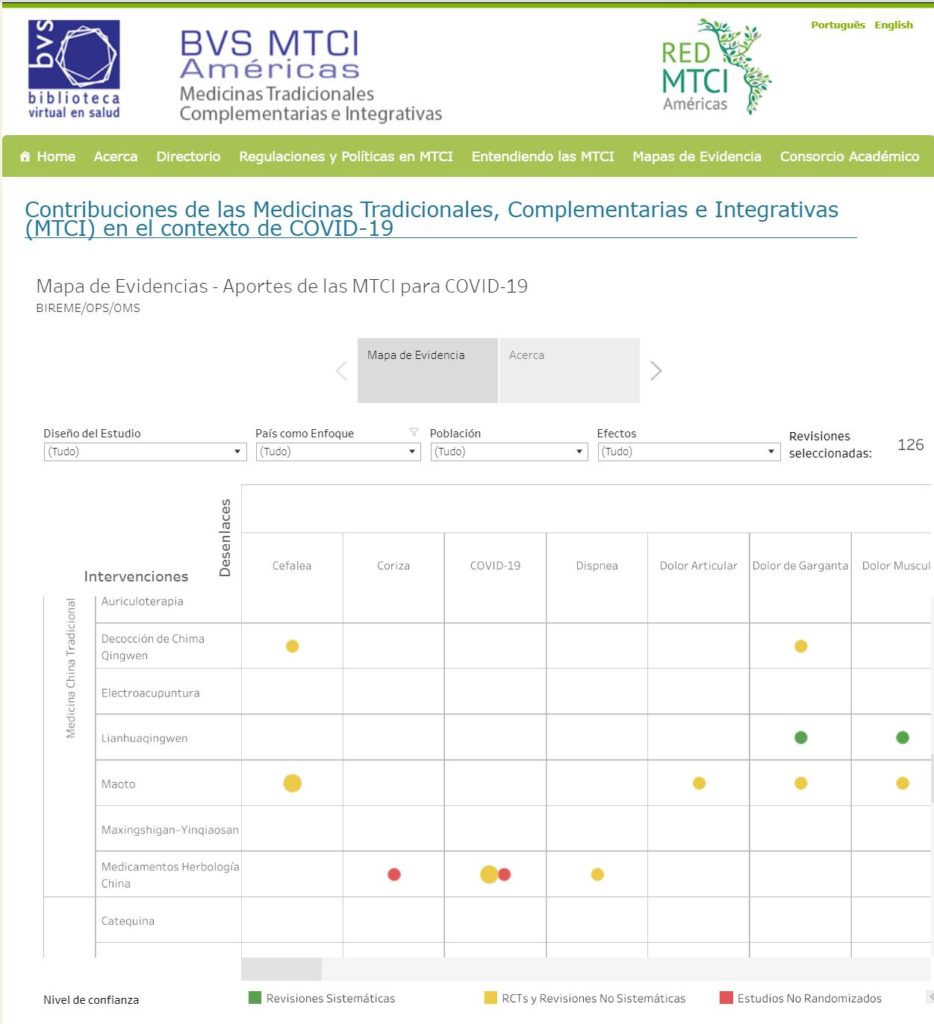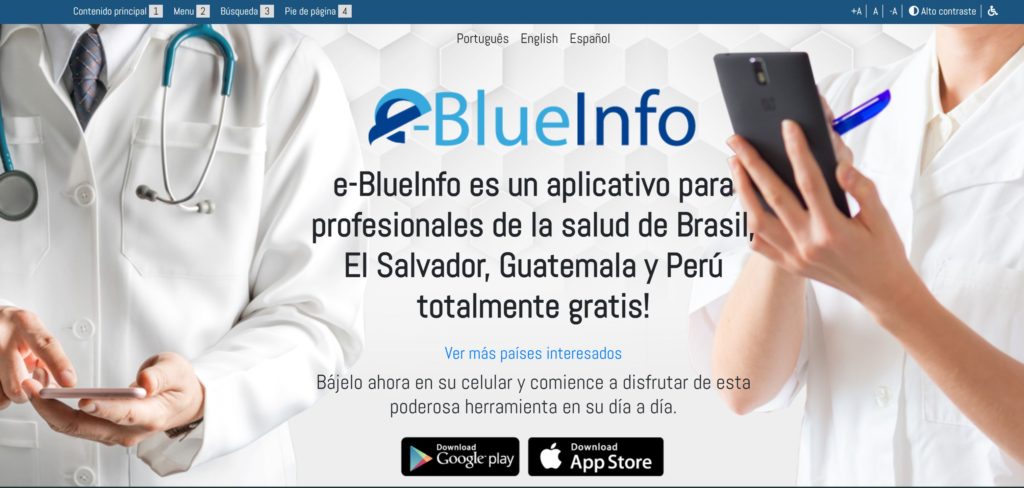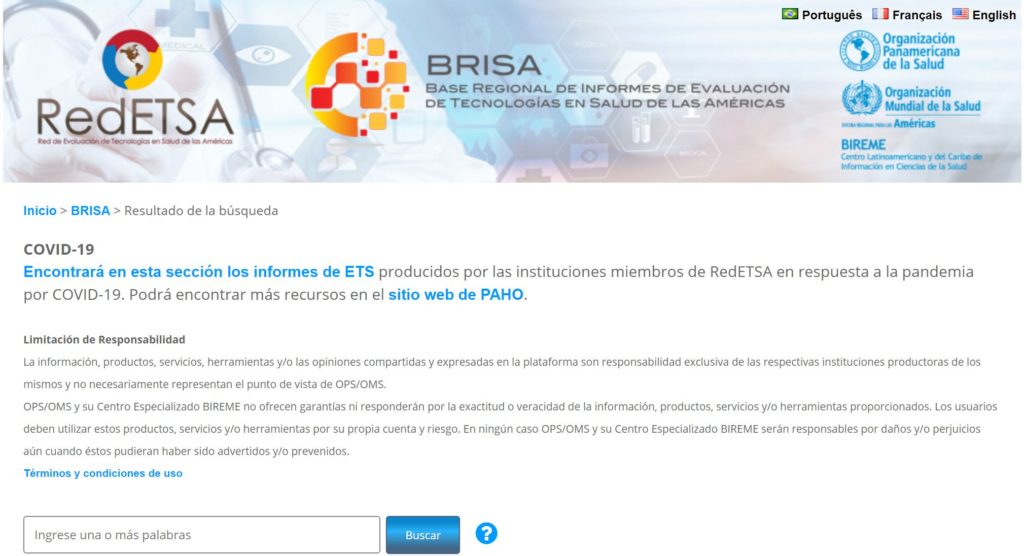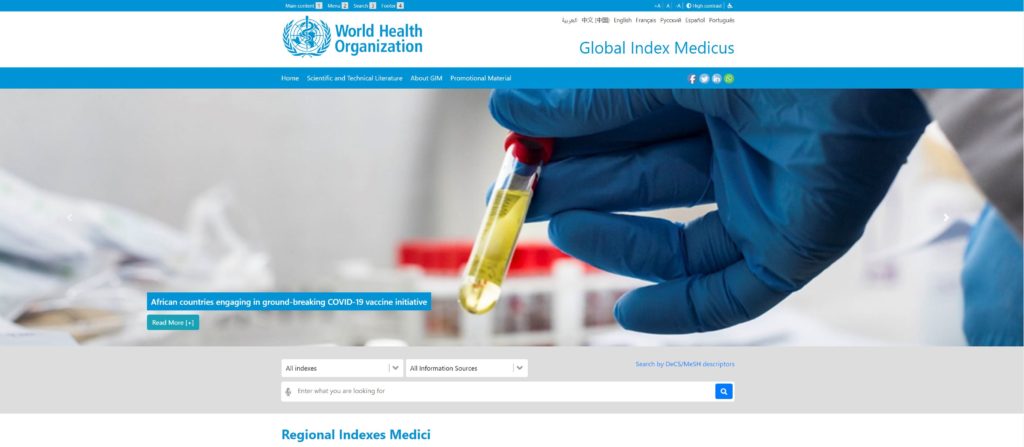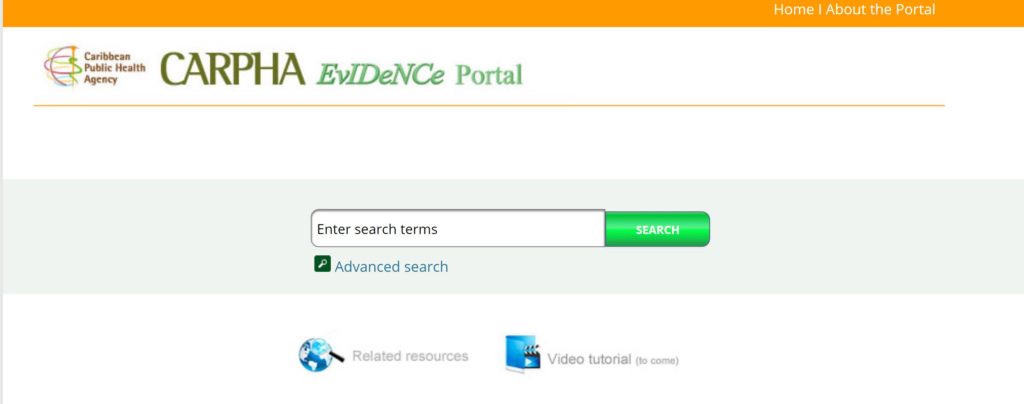
São Paulo, 19 January 2021 (PAHO/WHO)—The Latin American and Caribbean Center on Health Sciences Information – BIREME, as a Pan American Health Organization specialized center, part of the Department of Evidence and Intelligence for Action in Health (EIH), has played an important role since the beginning of the pandemic, together with the Organization’s efforts to provide health professionals and society with a series of products and services with reliable information about COVID-19.
Below, we detail some of them:
The methodology of the Windows of Knowledge, a resource of the Virtual Health Library (VHL) that highlights selected content on relevant and/or priority topics, was updated and applied in three showcases related to COVID-19, one of which is linked to the VHL Regional Portal and two linked to thematic instances: “Nursing COVID-19”, and another on “Contributions of Traditional, Complementary and Integrative Medicine, TCIM, to the COVID-19 pandemic”.
At the request of the World Health Organization (WHO), BIREME has contributed to the development of the global database of scientific literature on COVID-19. The WHO COVID-19 Database search interface was launched in April, using the same platform developed for the Global Index Medicus (GIM). This database is updated daily and data curation is the responsibility of the WHO Library team, which coordinates a global network of volunteers and specialists for the identification, selection and organization of documents. The average monthly growth rate of the base is 69% between April and October. To date, there are more than 124 thousand documents available, of which 80% full text. The accesses to the database demonstrate its visibility and global impact, with accesses from 230 countries and territories, according to the Google Analytics service. Comparing the period from August to October with May to July, there was a growth of 93% in number of users, 78% in sessions and 8% in pageviews. With eight months of operation, they already add more than 515,000 users, 658,000 sessions and 1.6 million pageviews.
The Evidence Maps methodology, adapted by BIREME, which constitutes the graphic representation of the existing evidence in a given area, classified by types of evaluated intervention and measured result, was applied to COVID-19 by the TCMI Americas Network, which systematized the evidence of reviews and randomized clinical studies on the application of some integrative practices in the clinical management of the symptoms of COVID-19, to improve immunity and for mental health in social isolation conditions. Moreover, a series of webinars have been organized to present and promote discussions based on the conclusions of these Evidence Maps, involving other countries outside the Region, such as Italy, the United States and India.
e-BlueInfo, the mobile application that puts information for the practice of health in the hands of primary health professionals, continues to be used by Brazil, Peru, Guatemala and El Salvador, who publish selected and updated content on the App. Since its launch in December 2018, there are more than 5,400 downloads, an increase of 107% in the last 12 months. Comparing January to October 2020, with the same period of 2019, e-BlueInfo shows a growth of 124% of visits and 102% of pageviews. Due to the pandemic, all participating countries have registered documents on COVID in the context of their health systems and services.
The VHL continues to facilitate access and giving visibility to a wide collection of health information sources through regional, national and thematic portals (instances) that apply the VHL Model for health information management. VHL usage statistics have shown how access to COVID-19 information tracks events at national and international levels. This behavior was observed in 60% of the countries and territories in the Americas that accessed the Window of Knowledge on COVID-19 from February to March. This correlation highlights the impact of BIREME’s technical cooperation to meet the demand for access and use of information and scientific evidence during this pandemic. For more information, visit the following link.
Expansion of the scientific and technical information about COVID-19 in the VHL, with the inclusion of SciELO Preprints, preprints of ARCA FIOCRUZ, and of the preprint collection on COVID-19 from medRxiv and bioRxiv, with daily update.
The Regional Database of Health Technology Assessment Reports in the Americas (BRISA in its Spanish acronym) developed by BIREME in a joint effort with the PAHO/WHO Department of Health Services, offers access to more than 1,900 health technology assessment reports, published by 31 institutions from 13 countries in the Americas. Due to the COVID-19 pandemic, a special section was created at the base with more than 270 assessment reports for drugs, medical devices and protection. The second semester shows a growth of 500% in the number of users, 485% of the sessions and 343% of the pageviews.
The Global Index Medicus (GIM), an initiative developed by BIREME in coordination with the WHO headquarters in Geneva and the WHO Regional Offices, which aims to organize and disseminate technical and scientific production in low and middle income countries, offers access to more than 2.1 million bibliographic references, 67% of which are in full text, available in the LILACS, AIM, IMEMR, IMSEAR and WRIM databases, representing the regions of the Americas, Africa, Eastern Mediterranean, WHO Southeast Asia and Western Pacific respectively. In 2020, GIM grew by 7% with more than 145 thousand new bibliographic references. Its search interface grew by 615% in number of users, 525% in sessions and 233% in pages visited in 2020, compared to 2019. 12% of pages visited in 2020 refer to documents related to COVID-19 and SARS-CoV-2.
A new database was developed dedicated to evidence for health policies systematization studies – Evidence Informed Policy (PIE, the acronym in Portuguese) which is already available in the VHL and has more than 560 studies, including policy briefs, deliberative dialogues and other types of content that systematize the evidence, many of them related to COVID-19.
CARPHA EvIDeNCe Portal for access to health evidence by the countries of the English Caribbean. Particularly, the MedCarib database continues to be updated with approximately 170 documents on COVID-19 in the Caribbean. The portal had an increase of about 80% in accesses, comparing the months of January-October in 2019 and 2020.
The User Service has a new platform “Ask the Librarian” available since April, with easy access to the various VHL pages and services, such as the COVID-19 Showcase and the search result pages. Until November, there were about 330 visits, with support information and access to the methodologies developed by BIREME, and approximately half of the requests are to subsidize systematic reviews and other types of research.
The Reference Network was very active during the year, there were six virtual meetings in which the participants were trained in techniques for the construction of search strategies, which resulted in about 120 search expressions, which were applied to generate and/or update the filters in the VHL search system, in the Windows of Knowledge. The COVID-19 theme alone has 31 filters available on different topics such as rehabilitation, vaccines, reinfection, complications and others. The Search Strategy Repository has 530 filters registered.
BIREME formal communication channels dynamic and in operation (Institutional website (in Spanish, Portuguese and English), Intranet, Facebook, Twitter and the news Bulletin) sharing relevant information on COVID-19 and providing visibility to other products and services developed by PAHO/WHO, such as Evidence database e and PAHO’s own institutional website, with constantly updated information about the pandemic.
According to Diego González, Director of BIREME, “the Center’s contribution in the face of the COVID-19 pandemic is part of our mission to democratize information, knowledge and evidence for health decision-making and we were very present in 2020 since the beginning of the pandemic and we will continue to do so, with regular updates of our databases, products and services and participation in increasingly frequent virtual events. Quality information is a critical factor in fighting infodemia and that is where our contribution lies”.
Recommended links
Accessing information in the era of the COVID-19 pandemic
Social networks and COVID-19: BIREME’s contribution
Advances in COVID-19 operation and search interface of the Global Index Medicus
Window of Knowledge provides information on Nursing in the context of Covid-19
Reference Network: streamlining pathways to access scientific information about 2019-nCov/COVID-19
PAHO’s Virtual Campus offers courses on COVID-19


